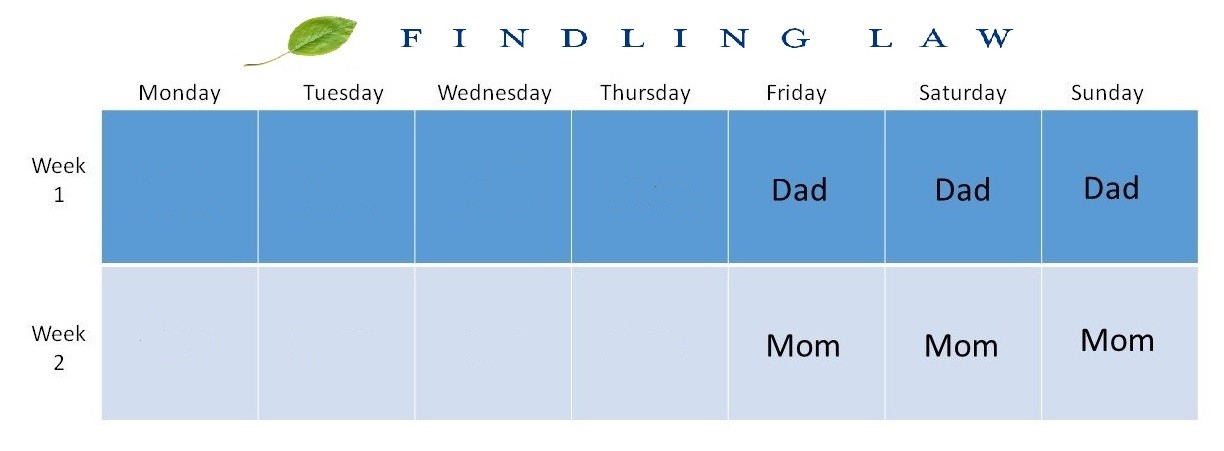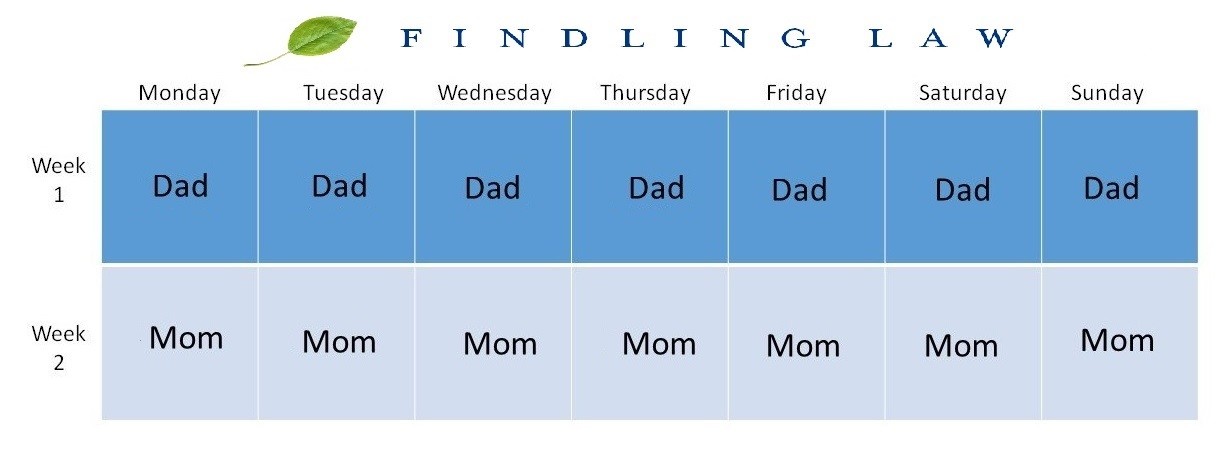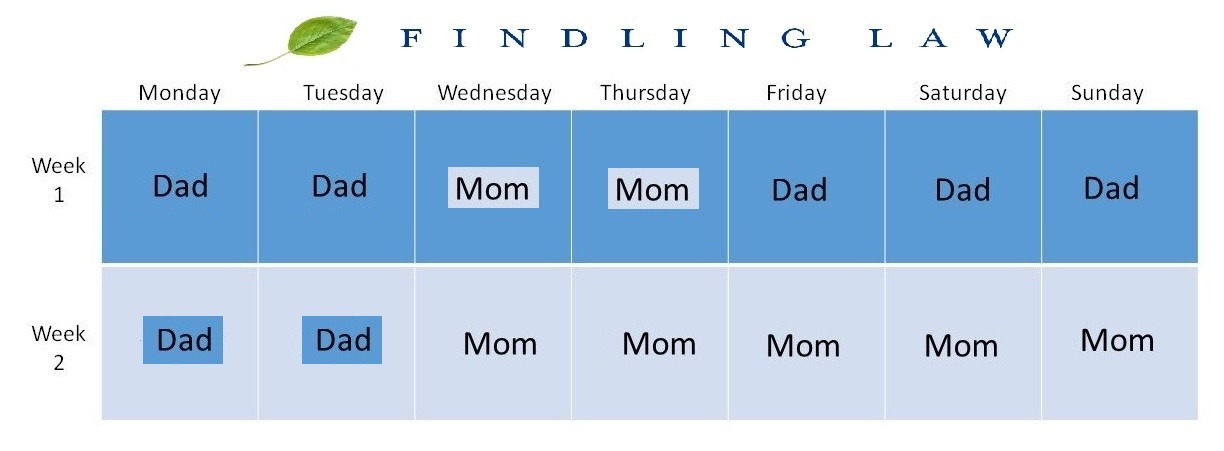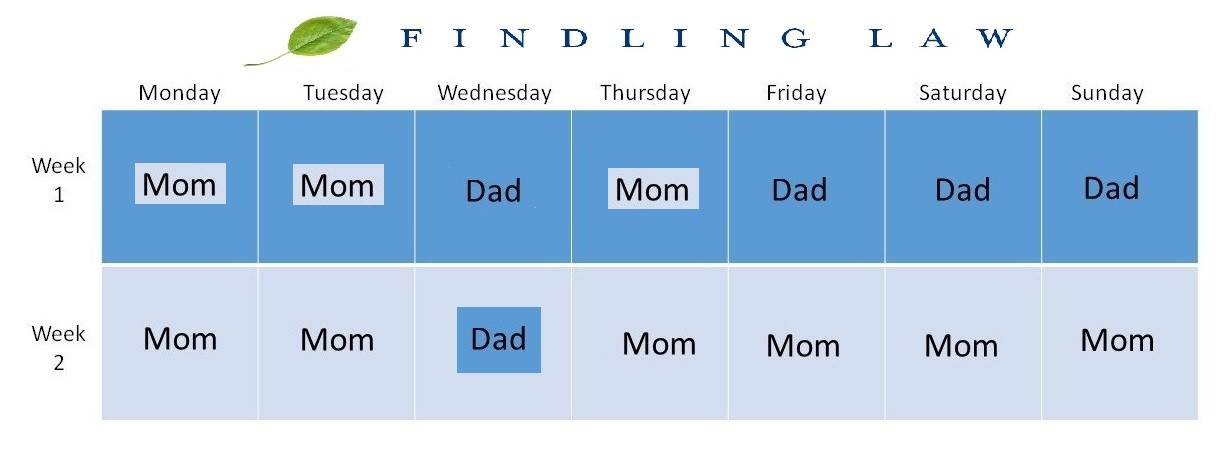Divorce is never easy, especially when children are involved. One of the most important aspects of post-divorce life is determining a parenting time schedule that works for everyone. Establishing a fair and effective schedule can reduce conflict and help children adjust to their new reality. In this blog, we’ll examine everything you need to know about parenting time schedules after divorce, offering practical advice, popular scheduling options, and tips to create a smooth co-parenting routine. It is usually better for parents to agree on parenting time terms, however, if they cannot, a court will decide using the parenting time factors set forth in MCL 722.27a
Understanding Parenting Time Schedules
Parenting time refers to the time each parent spends with their children after a divorce or separation. It’s essential for both parents to maintain a strong, active relationship with their children. A solid parenting time schedule ensures children benefit from consistent emotional support from both parents, while also maintaining a sense of stability in their lives.
In the aftermath of a divorce, parenting time schedules may be dictated by a formal custody arrangement or agreed upon through mediation or negotiation. In many cases, the goal is to create a schedule that minimizes disruption to the child’s daily life, ensures both parents stay involved, and provides adequate time for each parent to bond with their child.
Key Factors to Consider When Creating a Parenting Time Schedule
- Children’s Ages and Needs
The age of the child significantly impacts the type of schedule that will work best. Younger children may need more consistency and shorter visits with the non-custodial parent, while teenagers may have more flexibility, including their own preferences for time with each parent. For instance:- Infants and Toddlers: Regular, shorter visits are ideal, allowing the child to feel secure in both parents’ presence.
- School-Aged Children: A balanced schedule that accommodates school, extracurricular activities, and family time works best.
- Teenagers: Teenagers may have their own social schedules, so flexibility in parenting time is important.
- Parental Availability
Each parent’s work schedule and other responsibilities play a crucial role in the logistics of a parenting time arrangement. For example, one parent may have a job with irregular hours, while the other works a 9-5 job. Finding a schedule that fits both parents’ availability is key to reducing stress. - Proximity Between Homes
The distance between both parents’ homes is another important factor. A long commute can be exhausting for children, especially younger ones. A schedule that minimizes travel time, or a compromise on where the child spends more time, can make the transition easier for everyone. - Flexibility and Communication
Life is unpredictable, and having a flexible parenting time schedule can prevent conflicts when unforeseen circumstances arise. Open communication between parents and the ability to adapt to new needs or situations will contribute to a healthy co-parenting relationship.
Popular Parenting Time Schedules After Divorce
While each family’s situation is unique, there are several parenting time arrangements that are commonly used:
The 50/50 Split
This arrangement involves equal time spent with each parent. Popular schedules include:
- Week-on, Week-off: The child spends one full week with each parent.
- 2-2-3 Schedule: The child alternates between the parents every two or three days, ensuring that the child spends an equal amount of time with both.
The 70/30 Split
In this schedule, the child spends the majority of time with one parent, usually the parent with primary custody. This might look like:
- 3-4-4-3 Schedule: The child spends three days with one parent and four days with the other, alternating each week.
The 60/40 Split
This split gives each parent a slightly more uneven balance of time. For instance:
- Every other weekend and one evening a week with the non-custodial parent.
The Alternating Weekend Schedule
This is a simple and common arrangement where the child spends weekends with one parent and the weekdays with the other parent. For example:
- Friday to Sunday with one parent and the rest of the week with the other parent.
This works well for younger children or situations where one parent has more time during the weekends. It’s easy to manage but may leave the non-custodial parent with less time during the week.
Tips for Creating a Successful Parenting Time Schedule
- Put the Children’s Needs First
Always keep the best interests of your child at the forefront. Children thrive on consistency and routine, so prioritize their emotional and physical well-being when crafting a schedule. - Create a Clear and Detailed Schedule
Avoid misunderstandings by creating a clear, written parenting time agreement. Be specific about dates, times, holidays, and other important details. - Keep Communication Open
Effective co-parenting hinges on good communication. Stay in regular contact with your ex to handle schedule changes, share updates on your child’s well-being, and discuss any concerns. - Be Flexible and Understanding
Life can throw curveballs, so be prepared to adjust your schedule as needed. If something unexpected comes up (like a family emergency or a school event), try to accommodate changes without creating unnecessary conflict. - Set Boundaries and Respect Each Other
Even after divorce, it’s essential to maintain respect and boundaries. Be courteous about time management and avoid using the parenting schedule as leverage in disputes. - Use Technology for Coordination
Tools like parenting apps or shared calendars can simplify scheduling and keep both parents informed. These tools reduce misunderstandings and make the process smoother.
Final Thoughts
A well-crafted parenting time schedule after a divorce is critical to ensuring children feel loved and supported by both parents. While it can take time to find the right balance, being flexible, communicative, and putting your child’s needs first can help make the transition smoother. Remember, co-parenting is a team effort, and with the right mindset, both parents can create a healthy, nurturing environment for their child post-divorce.
If you’re struggling to create a schedule that works for you and your family, consulting a family lawyer or mediator can be a helpful next step in finding a solution that prioritizes the well-being of your children.
By following these guidelines, you can set yourself and your children up for success in the years to come.
About Findling Law
Findling Law, PLC – 414 W. 5th St. Royal Oak, Michigan 48067
Phone:+1 (248) 399-3300
After hours emergency?+1 (707) 968-7347
Email:Daniel@Findlinglaw.com
I have been exclusively practicing divorce and family law in Michigan for over two decades. The attorneys at Findling Law all share the core value of practicing law to help people navigate change in their lives, without compromising principles. We are compassionate, creative and always prepared. We specialize in high socio-economic, high-profile and high-conflict cases, while also working with clients of all backgrounds. We recognize that the most important aspect of the practice of law is the application of the law to your specific circumstances.That is why we provide more free information on divorce and family law than any other Michigan law firm. We want to help you manage your situation. Allow our exceptional legal team to help you navigate the change in your life, without compromising principles.
By: Daniel Findling




